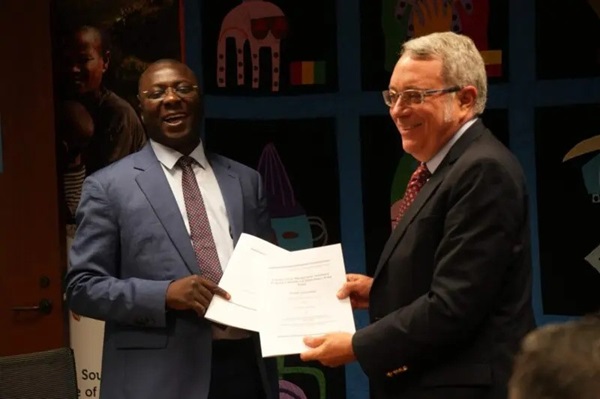Ghana has signed a $260 million Energy Sector Recovery Programme facility with the World Bank to boost the sector’s recovery and financial stability.
The agreement, signed in Washington, DC, on the sidelines of the IMF/World Bank Annual Meetings, targets improvements in revenue collection and energy supply quality through investments in prepaid metering and commercial meter management systems for utilities.
Of the total amount, $250 million is provided as a loan, while the remaining $10 million is a grant to the Government of Ghana.
Finance Minister Dr Mohammed Amin Adam signed on behalf of Ghana, with World Bank Country Director Robert Taliercio O’Brien signing for the World Bank Group.
Dr Amin Adam described the results-based financing as timely, noting that the facility would help tackle pressing sector challenges while improving life for Ghanaians.
“This year alone, we have spent about 18 billion cedis to cover energy sector shortfalls, a level of spending that is no longer sustainable,” he said.
He stated that Ghana’s economic recovery makes this an opportune time to invest in the energy sector.
He further pledged efficient use of the facility to achieve the intended results.
World Bank Country Director Robert O’Brien noted that the agreement underscores the World Bank’s commitment to supporting Ghana’s energy sector.
Facility Details and Focus Areas
In June, the World Bank approved a $250 million credit from the International Development Association (IDA) and an additional $10 million grant from the Energy Sector Management Assistance Program (ESMAP) to support the four-year Ghana Energy Sector Recovery Programme for Results (PforR).
The program aims to improve the financial sustainability of electricity distribution and expand access to clean cooking solutions.
The P for R will also provide direct financing to energy sector utilities to enhance capital expenditure programs, complementing regulatory and policy reforms under the World Bank development policy financing series and the IMF’s Extended Credit Facility.
GNA





